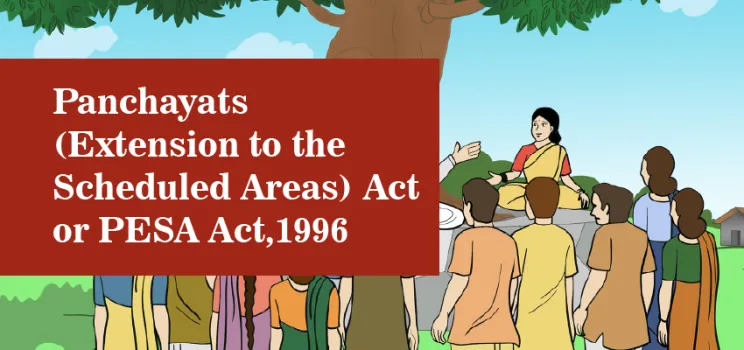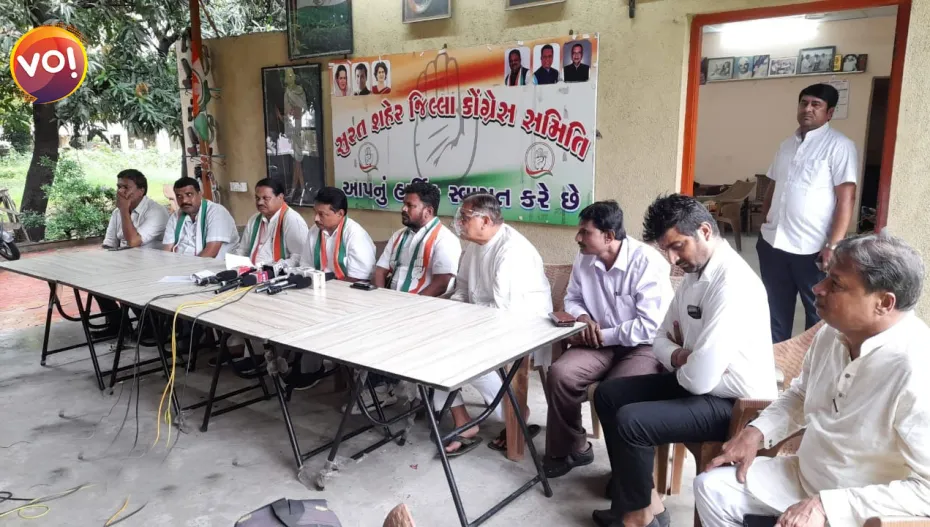Four days after the Chhattisgarh Government on July 7 finally approved the draft rules for the implementation of the revolutionary Panchayat (Extension to Scheduled Areas) Act, more known as PESA, which vests powers to decide on tribal community properties among the Gram Sabhas, the Gujarat Congress has immediately drafted its tribal legislators, former MPs and leaders to the poll-bound State.
After long last, the rules were approved at the cabinet meeting chaired by Chief Minister Bhupesh Baghel here, a Chhattisgarh government spokesperson said.
If in tribal-dominated South Gujarat, the Congress drafted its sitting legislators held a press conference on Monday, at the State Headquarters in Gujarat, the same responsibility was handled by Leader of Opposition Sukhram Rathwa, himself a tribal from Chhotaudepur, GPCC President Jagdish Thakor, former PCC chief Arjun Modhwadia and GPCC chief spokesperson Manish Doshi addressed media persons.
As is clear the tardy implementation of PESA would be the key campaign issue in the 27 Scheduled Tribes reserved seats in Gujarat, which is poised to be the Congress’ mainstay if they wish to better or even retain their 2017 performance of 77 seats. The Congress got 15 seats and its alliance partner Bharatiya Tribal Party won 2 seats, the BJP managed nine and one Independent won.
The PESA Act was enacted by Parliament in 1996 to ensure self-governance for people living in Scheduled Areas. The states were required to formulate rules for the effective implementation of the Act to strengthen gram sabhas in Scheduled Areas.
Chhattisgarh Health Minister T S Singh Deo, who also holds the Panchayat and Rural Development portfolio, told the media on July 7 that the Congress’ promise in the 2018 assembly elections to formulate rules for the implementation of the PESA Act was fulfilled on Thursday.
Congress leader Rahul Gandhi had made the promise to implement PESA in the State, which they had fulfilled. The minister also thanked Chief Minister Bhupesh Baghel for approving the draft rules, which will now pave the way for implementation.
All sections of society would get representation in the gram sabha samities (committees), he said in a series of tweets.
“I am very happy to share with you all that as per the intention of Shri Rahul Gandhi Ji, we had promised to implement PESA rules in Chhattisgarh in our Jan Ghoshna Patra and it was fulfilled today,” the minister said.
“I would like to thank Chief Minister Bhupesh Baghel and my cabinet colleagues for approving the draft which was prepared after discussion with the national and regional public representatives of Scheduled Tribe communities, party representatives and senior social workers during the last 2.5 years,” he added.
As per the draft rules, there will be a minimum of 50 per cent representation to the Scheduled Tribes, while Other Backward Classes, Scheduled Castes and unreserved classes will also get representation according to their population, the minister said.
Speaking at the Surat press conference, former union minister Dr Tushar Chaudhary, former South Gujarat MP Kishan Patel and sitting tribal MLAs Anand Chaudhary, Anant Patel, Punaji Gamit and Sunil Gamit said at a time when the Adivasi community in Gujarat is passing through an existential, social, economic and cultural crisis, the BJP Government is depriving them of their rights. The Congress Government in Chhattisgarh has demonstrated its party’s commitment to the issues of tribals and made the PESA rules, as promised in its Chhattisgarh manifesto.
Sukhram Rathwa pointed out that the framing of PESA rules in 2017 was in fact a negation of the very spirit of the law and is an ultra virus of the legislation since the Gram Sabha has been vested with its rights in the tribal areas only on paper whereas the final authority of any key decision remains with the State machinery controlled by the District Collectors and District Development Officers.
What is PESA?

PESA extends the provision of the Indian Constitution to formalise the three-tier Panchayati Raj system to fifth Schedule areas with certain modifications and exceptions. While the 73rd and the 74th Amendments to the Indian Constitution passed in 1992 took the three-tier Panchayati Raj governance structure to rural and urban parts of the country, the tribal-dominated areas listed under the fifth schedule of the Constitution were kept out of the purview of the Panchayati Raj Acts. PESA, enacted in 1996, took local self-governance rules to the areas listed under the fifth schedule.












